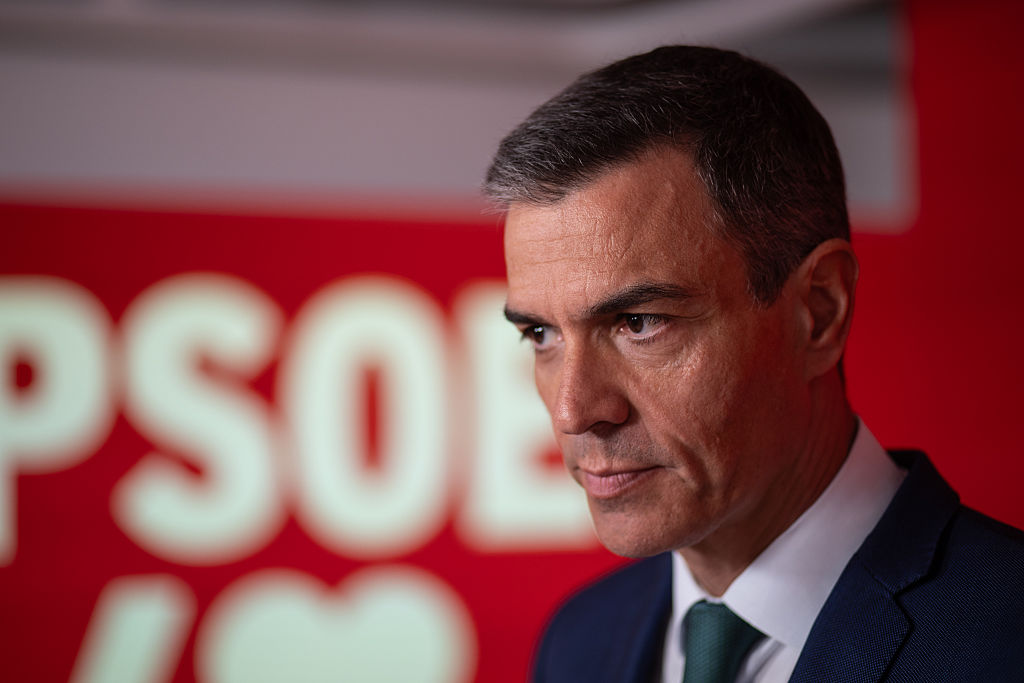MADRID – Spanish Prime Minister Pedro Sánchez is running out of ideas and allies to save his socialist party and coalition government as an alleged, “mafia-like” kickback scheme creeps ever closer to his own office.
Sánchez received a standing ovation this weekend from the party faithful at their party congress in Madrid, where he was unanimously reaffirmed as leader of the Spanish Socialist Workers’ Party, widely known by its acronym, PSOE.
The display of unity was about damage control, as just hours before Sánchez’s close ally, Francisco Salazar, resigned after several women accused him of sexual harassment and abuse of power.
He was due to take up the post of deputy secretary in the party’s organisational secretariat.
Across the city, the opposition Partido Popular (PP) was also holding its own congress, launching a perfectly timed charm offensive to capitalise on Sánchez’s political fragility.
If elections were held today, the PSOE would lose, according to a survey by 40dB for El País.
To make things worse for the socialist prime minister, opposition leader Alberto Núñez Feijóo said on Sunday he would not rule out alliances with the far-right Vox party.
For Sanchez, the weekend congress was an attempt to turn the page by bringing in new blood after the corruption probe engulfing the party forced one key figure after another to step down.
The case began in February 2024 when prosecutors launched an operation to unravel an alleged Covid-era corruption scheme involving bribes connected to mask contracts worth millions.
Along the way, prosecutors uncovered a network of kickbacks, rigged tenders, and influence peddling that may extend into the core of Spain’s ruling party.
The Koldo case
Last year, the anti-corruption prosecutor’s office ordered the Guardia Civil’s top investigative unit to arrest Koldo García, a former advisor to ex-Transport Minister Ábalos, for illicitly granting public awards to private companies in exchange for kickbacks.
That arrest opened the door to a wider probe into Ábalos himself, who was already ousted from government in 2021 but clung to his MP seat in the independent group – protected by parliamentary immunity.
Then came the testimony from businessman Víctor de Aldama, an alleged middleman between companies and government officials. In December 2024, he told the Supreme Court that Sánchez’s right-hand man and PSOE’s number three, Cerdán, played a key role in the kickback scheme.
But the rot, it turned out, was not confined to pandemic procurement. Investigators have since uncovered suspect contracts in the construction industry, revealing rigged public tenders and illicit payments to companies allegedly linked to Koldo, Ábalos, and Cerdán.
Cerdán allegedly received €600,000 kickbacks tied to the improper awarding of public work contracts. One business is also said to have delivered €90,000 in cash directly to PSOE headquarters in Madrid, as reported by Spanish outlet The Objective.
Adding to the pressure, Aldama has publicly said more audio recordings, which could implicate the prime minister directly, are likely to be released in the future.
Sánchez denies any wrongdoing.
A ‘bombshell’ case
The scandal was brought into the spotlight in June when the bombshell police report of the Koldo case was made public.
Soon after, the Supreme Court judge ordered the preventative detention of Cerdán under charges of “membership of a criminal organisation, influence peddling and bribery.”
“It has been a bombshell, nobody expected this dimension, nobody expected that PSOE number three could be involved in a corruption plot,” a PSOE spokesperson told Euractiv, adding the socialist party felt “used” by Cerdán.
More police reports are expected in July and Koldo and Ábalos are regularly being summoned to testify in court, El Confidencial reported.
Tensions inside PSOE have only deepened since Ábalos last week signalled his willingness to negotiate with prosecutors. Ábalos might expose the full scheme to avoid prison, potentially implicating sitting cabinet members and even Sánchez himself.
The question gripping Spain’s political class is no longer just whether Sánchez can save his party, but whether he can save himself.
(mm)
